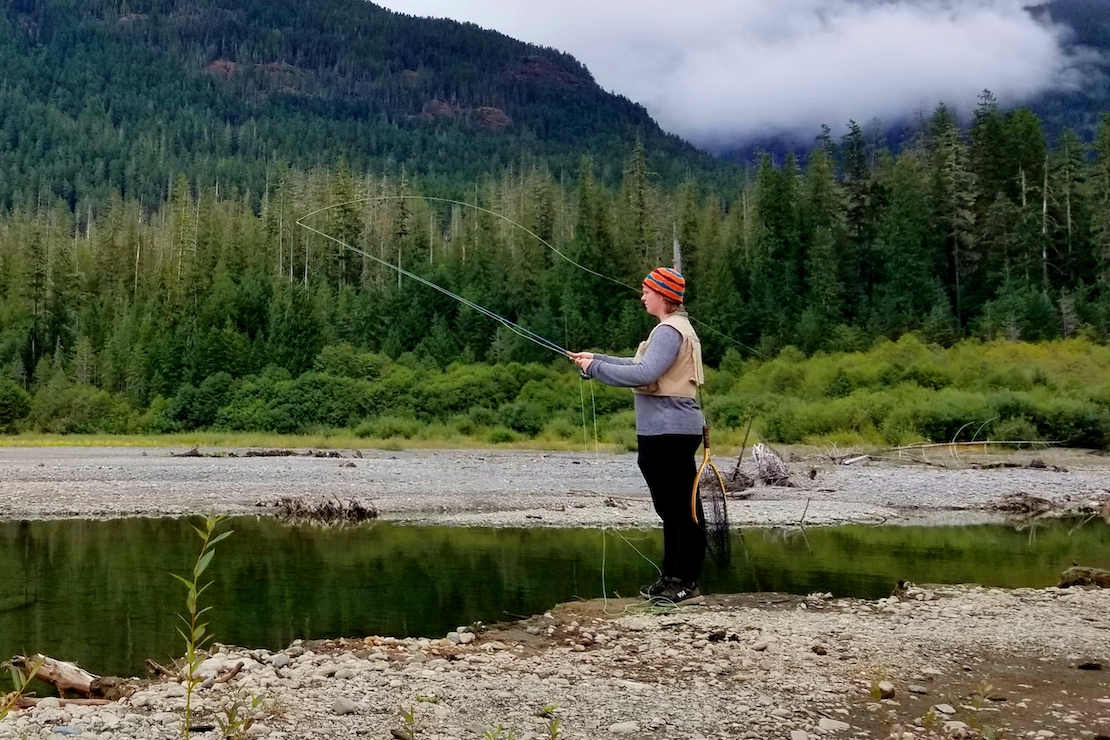Fishing and hunting are permitted in some BC Parks. These activities are strictly regulated and are illegal without the proper licences. Always make sure you have the correct licences before setting out.
To see if the park you are planning to visit allows fishing or hunting, check the park’s webpage.
Look below for specific guidance on:
To report poachers and polluters, contact a conservation officer at 1-877-952-RAPP (7277).
Fishing
Park rangers are empowered to issue fines and penalties for certain federal Fisheries Act violations, including fishing without a licence.
Freshwater fishing
Before setting off on a freshwater fishing trip:
- Purchase a freshwater fishing licence online
- Review the Government of BC’s freshwater fishing regulations
Saltwater fishing
Before setting off on a saltwater fishing trip:
- Apply for both provincial and federal fishing licences
- Review the Government of Canada’s sport fishing guide
- Ensure there are no federal fishing closures or restrictions in effect
You can use some marine navigation smartphone apps to track federal fishing closures and the boundaries of Marine Protected Areas.
Preventing the spread of invasive species
To preserve the natural environment and protect native marine life, please help us prevent the spread of invasive species, by:
- Never releasing live animals (such as goldfish and lobsters) into lakes or other bodies of water
- Following the Clean, Drain, Dry approach to remove contaminants from your boat after use
Visit the Clean, Drain, Dry website to learn how to properly clean your boat and equipment.
Hunting
Before setting off on a hunting trip:
- Review the BC Government’s hunting and trapping regulations synopsis
- Check the park’s webpage for any park-specific hunting regulations
Firearms are prohibited in BC Parks, except when carried by a properly licensed hunter during an open hunting season defined by the Wildlife Act. Discharging firearms is not allowed within 400 meters of any park road or highway.
Backcountry hunting
‘Backcountry’ means an area more than 1km away from any highway or park road. Backcountry areas are not accessible by vehicle and have few facilities. Hunting in backcountry parks, protected areas, or the wilderness requires extra care and awareness.
Strictly following the guidelines below will help you minimize your impact on these sensitive ecosystems:
- Carry bear spray and make sure you know how to use it
Bear spray has been found to be more effective in diverting bear attacks than firearms. Using bear spray is better for both hunters and bears.
- Check the park’s webpage for information on vehicle restrictions
Most parks do not allow motorized vehicles in the backcountry. Always check restrictions before taking a vehicle beyond frontcountry roads and tracks.
- When you meet hikers or hunters, let them know where you will be hunting
- Take down meat-hanging poles when leaving your camp and scatter them
- Take down any flagging tape you use, once you are finished with it
- Do not leave gut piles near trails, campgrounds, or recreational sites
- Ensure that any meat you are carrying does not attract bears
- Record and report any illegal activities you witness (1-877-952-7277)
For more information on responsible recreation in remote areas, visit the backcountry guide page.
Aboriginal harvesting rights
For thousands of years, Indigenous Peoples have inhabited the land that we now call British Columbia. Aboriginal rights are inherent rights pre-dating European settlement and are based on a prior occupation and use of the land.
Indigenous Peoples in B.C. can use parks and protected areas to exercise certain Aboriginal rights. These may include hunting, fishing, and gathering plants for traditional medicines and ceremonial use.
First Nations hunting, trapping, or fishing on their traditional territory can harvest fish or wildlife for food and social or ceremonial purposes. They do not need to follow provincial regulations like open season, gear restrictions, and bag limits.
Please show respect for First Nations members participating in these activities, and do not disturb them.
All First Nations must follow regulations regarding conservation, public health, and public safety. The exercise of Aboriginal harvesting rights may be limited if there are concerns related to these regulations.
